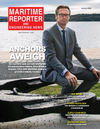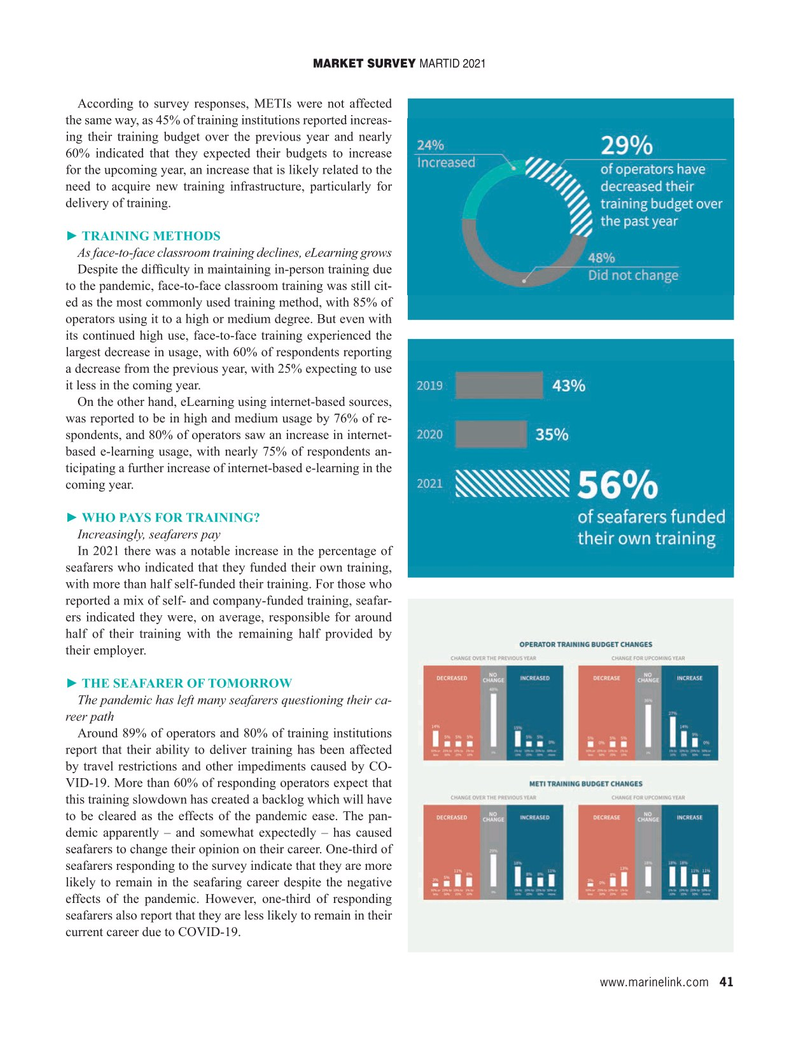
Page 41: of Maritime Reporter Magazine (January 2022)
The Ship Repair & Conversion Edition
Read this page in Pdf, Flash or Html5 edition of January 2022 Maritime Reporter Magazine
MARKET SURVEY MARTID 2021
According to survey responses, METIs were not affected the same way, as 45% of training institutions reported increas- ing their training budget over the previous year and nearly 60% indicated that they expected their budgets to increase for the upcoming year, an increase that is likely related to the need to acquire new training infrastructure, particularly for delivery of training.
? TRAINING METHODS
As face-to-face classroom training declines, eLearning grows
Despite the dif? culty in maintaining in-person training due to the pandemic, face-to-face classroom training was still cit- ed as the most commonly used training method, with 85% of operators using it to a high or medium degree. But even with its continued high use, face-to-face training experienced the largest decrease in usage, with 60% of respondents reporting a decrease from the previous year, with 25% expecting to use it less in the coming year.
On the other hand, eLearning using internet-based sources, was reported to be in high and medium usage by 76% of re- spondents, and 80% of operators saw an increase in internet- based e-learning usage, with nearly 75% of respondents an- ticipating a further increase of internet-based e-learning in the coming year. ? WHO PAYS FOR TRAINING?
Increasingly, seafarers pay
In 2021 there was a notable increase in the percentage of seafarers who indicated that they funded their own training, with more than half self-funded their training. For those who reported a mix of self- and company-funded training, seafar- ers indicated they were, on average, responsible for around half of their training with the remaining half provided by their employer. ? THE SEAFARER OF TOMORROW
The pandemic has left many seafarers questioning their ca- reer path
Around 89% of operators and 80% of training institutions report that their ability to deliver training has been affected by travel restrictions and other impediments caused by CO-
VID-19. More than 60% of responding operators expect that this training slowdown has created a backlog which will have to be cleared as the effects of the pandemic ease. The pan- demic apparently – and somewhat expectedly – has caused seafarers to change their opinion on their career. One-third of seafarers responding to the survey indicate that they are more likely to remain in the seafaring career despite the negative effects of the pandemic. However, one-third of responding seafarers also report that they are less likely to remain in their current career due to COVID-19.
www.marinelink.com 41
MR #1 (34-49).indd 41 1/6/2022 10:03:53 AM

 40
40

 42
42
